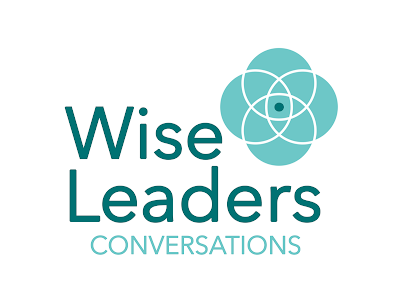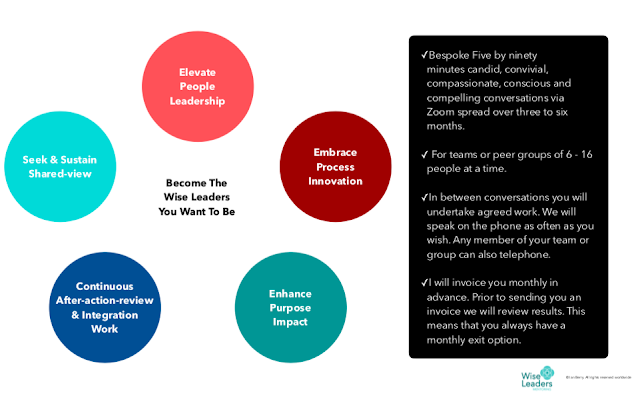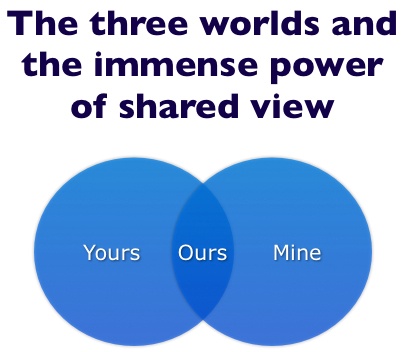Listen to the podcast version of this post
Each Friday's podcasts are always under 10 minutes.
This is episode 113.
Candid, convivial, compassionate, conscious and compelling conversations
enrich the relationships essential to help us to turn possibility into reality.
Such conversations take performance to new heights when they are helpful, valuable,
about the personal more than the business, and about why more than how.
Nine years ago we moved home to a place where I could easily generate enough in person work within no more than a couple of hours drive from home as well as do some work online. My primary reason was that after thirty years I was done with flying somewhere almost every week to give short presentations and then come home again. I also had health challenges that were made worse through continuous flying.
Part of my change was to shift from mainly presentations and some conversations to mostly conversations.
The changes have been relatively easy with most of my work being online. This was not what I expected. Of course I’m very glad as it turned out given we are living with a pandemic.
The changes that have been dramatic have been the kind of conversations I’m having, their value to others, and their purpose.
This has also led to never boring conversations and no Zoom fatigue!
I was always candid. What’s changed is the nature of my candour. I am now also deliberately convivial, compassionate, conscious and compelling.
The primary purpose of having conversations has shifted from mostly business development and how to do things to mostly being about personal development and why more than how.
I learned a great lesson from Bernadette Jiwa who believes that marketing is simply a series of helpful conversations.
Making the primary purpose of my conversations with clients, prospect clients, and people in general to be helpful has meant more meaningful, valuable and relevant conversations for everyone.
I’ve been deeply inspired also by the poet David Whyte who said “in leadership the conversation is not about the work, the conversation is the work".
This shifting in purpose has also led to shifts in focus from business and how, to personal and why.
Suggested practices
1. Be Candid
I think the first words that came out of my mouth where candid. They caused a bit of a stir apparently!
I've never been backward coming forward. I think life's too short for BS. Being candid is one way to stand out because most people aren't candid.
Not everyone appreciates candour however and therefore being candid can be tricky.
I've worked very hard to make sure that my candour means I'm also kind.
Knowing and acknowledging that there's more than one way forward keeps being candid in context, inspires careful choosing of words, and helps to make kindness the focus.
Being candid in kind ways helps you to stand out, show empathy, and shine a light for others on their path.
2. Be convivial
Being convivial as well as candid has taken my communication and conversations to a whole new level.
We all take ourselves too seriously. In presentations, conversations and communication in general I use a lot of self-depreciating humour. It deepens, adds value to and strengthens relationships.
Some synonyms for convivial: friendly, genial, affable, amiable, congenial, agreeable, good-humoured, cordial, warm, sociable, outgoing, gregarious. We're all capable of these character traits when we're being the best version of ourselves.
Being convivial in kind ways enables you to take yourself less seriously, delight others, and laugh a lot!
3. Be compassionate
There's a lot of truth for me in the following attributed to Fred Kofman, a leader in the conscious business movement:
"Wisdom without compassion is ruthlessness, and compassion without wisdom is folly."
One of the Apostles of the Christian Church is reported to have said, “Faith without works is dead.”
A lot of faiths are dead, dying, or in trouble today because the actions of a few of the faithful betray their stated beliefs. I meet a lot of people more interested in being right than being compassionate for example.
Compassion for me is at the truthful heart of all the world’s religions. Compassion is not a belief, it's a behaviour.
If we are not living and breathing a compassionate life we render whatever we believe as null and void, regardless of what we say.
A new world is being born. Compassion is a key component. There is a place for faith in this new world. For me belief is personal and therefore deserving of respect. What really matters in this new world though is behaviour.
Some people have asked me what has compassion got to do with the future success of my business? My answer is - Everything! particularly in a world where being purpose driven and people focused, and seeing technology as an enabler and enhancer of the human experience, is the leading edge.
Being compassionate brings out the best in you, other people, and makes the world a better place.
Being candid, convivial and compassionate are keys to all great relationships.
4. Be conscious
Conscious leadership, conscious business, conscious capitalism are just three current trends. I recommend a google search on consciousness. In my world all conversations are embracing consciousness and particularly focusing on who we are, why we're here, and why understanding our interconnectedness with all living things, including our planet and the universe, is crucial to being the best we can be.
5. Be compelling
I put together a short paper about compelling conversations with my friend and colleague Gary Edwards.
We say in the paper that every conversation has two aspects: the Task (should we do this thing?) and the Relationship (are you someone that I can trust?). Learn more by downloading our paper here.
6. Who and Why More Than What And Do
In conversations in our Wise Leaders Peer Groups and first and third Wednesday conversations we focus more on personal development and purpose more than we do on what to do and how to do things.
This comes from a central philosophy that people know what to do and how to do it. What people need and want from leaders is support, encouragement and appreciation and help in seeing, somethings unearthing yet mostly magnifying and enhancing their essence (unique personal wisdom).
I call this people leadership. Elevating people leadership is the main focus of the conversations that I have with my clients. We support this by also have conversations about embracing process innovation and enhancing purpose impact.
Adopt these practices in your own best way and I’m confident that you will delight in the performance improvement that follows when people are enabled and empowered to work out their own how to’s coming from a deep understanding of who they are and why they do what they do.
Become the wise leader you want to be.
Ian
PS For a time the first and third Wednesday conversations that I host are complimentary if you have subscribed to my Wise Leaders Newsletter. Learn more and subscribe here.














